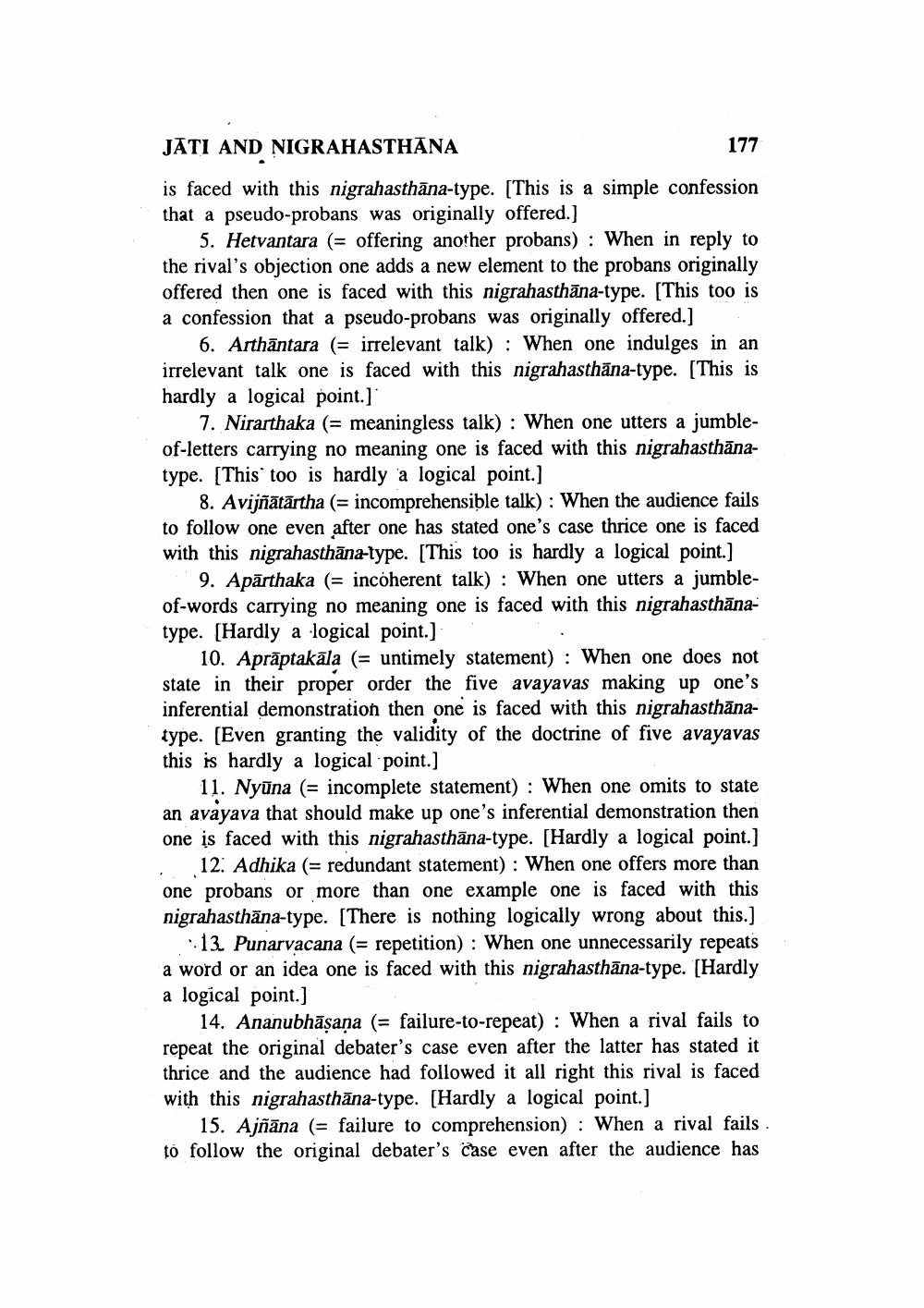________________
JĀTI AND NIGRAHASTHANA
177
is faced with this nigrahasthāna-type. [This is a simple confession that a pseudo-probans was originally offered.)
5. Hetvantara (= offering another probans) : When in reply to the rival's objection one adds a new element to the probans originally offered then one is faced with this nigrahasthāna-type. [This too is a confession that a pseudo-probans was originally offered.]
6. Arthāntara (= irrelevant talk) : When one indulges in an irrelevant talk one is faced with this nigrahasthāna-type. [This is hardly a logical point.)
7. Nirarthaka (= meaningless talk) : When one utters a jumbleof-letters carrying no meaning one is faced with this nigrahasthānatype. [This too is hardly a logical point.)
8. Avijñātārtha (= incomprehensible talk) : When the audience fails to follow one even after one has stated one's case thrice one is faced with this nigrahasthāna-type. [This too is hardly a logical point.]
9. Apārthaka (= incoherent talk) : When one utters a jumbleof-words carrying no meaning one is faced with this nigrahasthānatype. [Hardly a logical point.)
10. Aprāptakala (= untimely statement) : When one does not state in their proper order the five avayavas making up one's inferential demonstration then one is faced with this nigrahasthānatype. (Even granting the validity of the doctrine of five avayavas this is hardly a logical point.)
11. Nyūna (= incomplete statement) : When one omits to state an avayava that should make up one's inferential demonstration then one is faced with this nigrahasthāna-type. [Hardly a logical point.)
12. Adhika (= redundant statement) : When one offers more than one probans or more than one example one is faced with this nigrahasthāna-type. (There is nothing logically wrong about this.]
13. Punarvacana (= repetition) : When one unnecessarily repeats a word or an idea one is faced with this nigrahasthāna-type. (Hardly a logical point.)
14. Ananubhāsaņa (= failure-to-repeat) : When a rival fails to repeat the original debater's case even after the latter has stated it thrice and the audience had followed it all right this rival is faced with this nigrahasthāna-type. (Hardly a logical point.)
15. Ajñāna (= failure to comprehension) : When a rival fails. to follow the original debater's case even after the audience has




